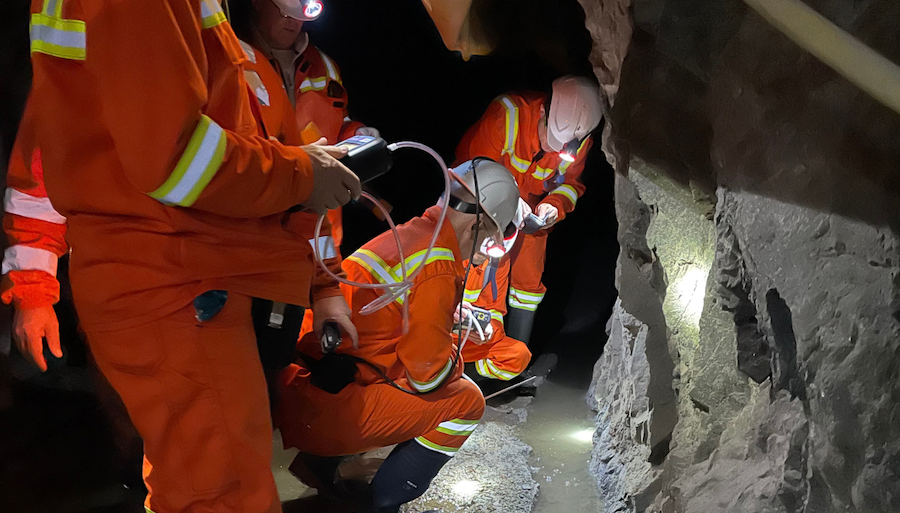The depths of a chromite mine in Albania have turned out to be a massive natural hydrogen reservoir, an international scientific team recently discovered.
In a paper published in the journal Science, the researchers note that the mine showcases a remarkably high hydrogen outgassing rate of at least 200 tons per year. This is the highest recorded natural H2 flux to date.
One of its physical manifestations that gave away the presence of the gas is that it turns a draining pool inside a mine gallery into a 30-square-metre jacuzzi bubbling with almost pure H2 (84% by volume). This considerable natural outgassing raises the question of hydrogen’s origin and potential economic prospects.
In recent years natural or geologic hydrogen has gained widespread interest due to its potential as an extractable primary energy resource.
The researchers point out that although this flow is minimal compared to the global production of hydrogen by the petrochemical industry (100 million tons per year), in-situ observations and numerical simulations reveal the presence of a deep reservoir located in a well-identified fault zone. Mining operations have perforated this reservoir, resulting in hydrogen leakage at several well-localized points in the deepest galleries.
This discovery lays the foundations for new models of natural hydrogen exploration. In this sense, the Bulqizë chromium mine, by offering direct access to the subsurface, is a key scientific tool for studying the hydrogen system and understanding the conditions of formation and accumulation of this gas.
The study points out that ophiolitic massifs – mantle rocks from the oceanic crust obducted onto continents – are proving to be potential hosts for these high-quality hydrogen reservoirs. These large, widespread geological formations on earth have already been identified as hosting hyperalkaline sources where hydrogen bubbles.
However, the researchers note that it’s still too early to say whether natural hydrogen will take a significant place in the global energy mix or remain a niche curiosity. It is important to stress that geologic H2 is not renewable as the production time for H2 far exceeds the extraction time. These geological environments harbour a fragile deep biosphere that relies on H2 as an energy source.
“Therefore, we also deliver a message of caution to temper the passion, and even sometimes the ‘hydrogen fever,’ that will undoubtedly be stimulated by our discovery,” the scientists note. “While geologic hydrogen exploration warrants great scientific efforts, we must also be mindful of its potential environmental impact.”
ENB Top News
ENB
Energy Dashboard
ENB Podcast
ENB Substack

